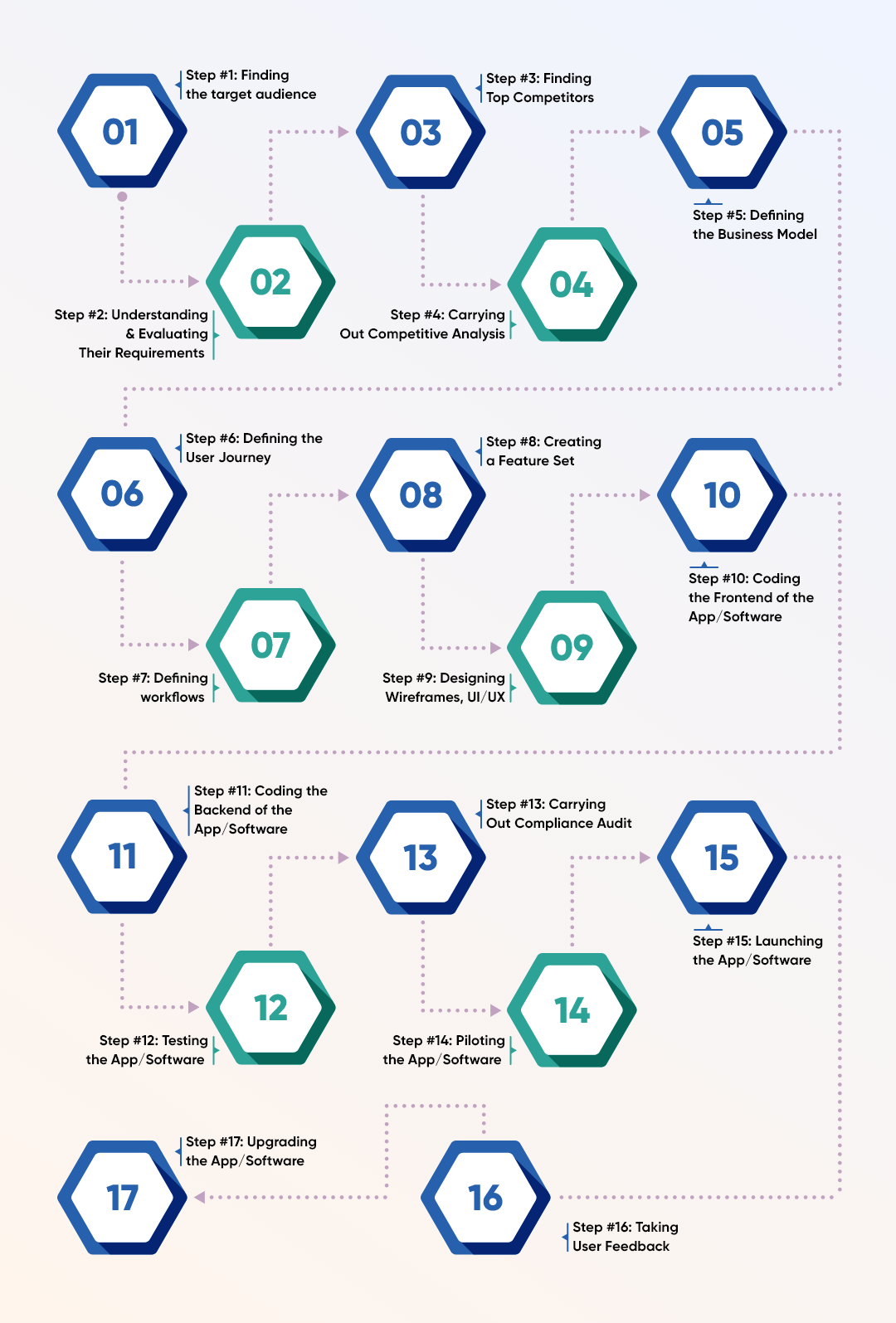Healthcare Project Management: Objectives, Models, and Team Requirements
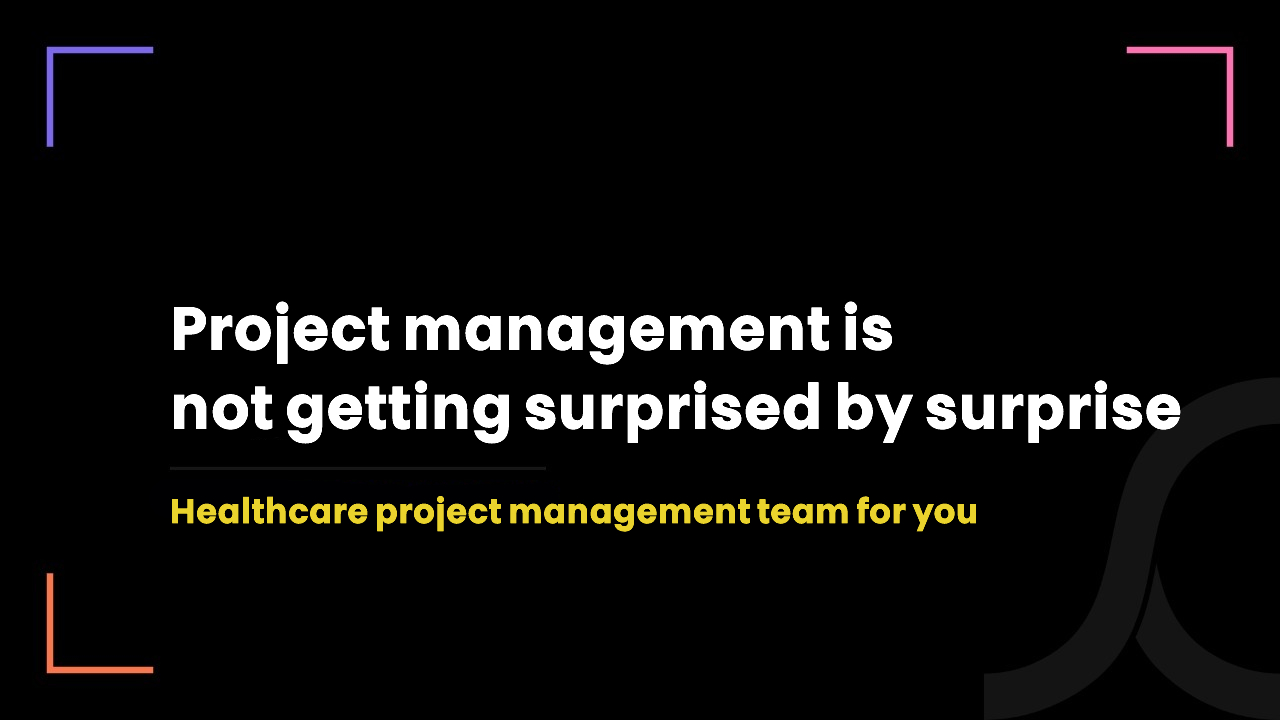
1 year ago
70% of projects fail, due to poor project management.
And when it comes to healthcare projects, things go messier as a healthcare project generally deals with life!
As per our internal survey, almost 60% of healthcare projects in North America either overshoot budget/time or end up delivering fewer deliverables than planned.
To not be trapped in such a situation with your healthcare project, especially healthcare IT projects, healthcare project management is crucial. And we are going to discuss the same today.
Top Objectives of Healthcare Project Management
Defining project objectives makes project management & project performance tracking easier.
Imagine a situation where you’re managing a healthcare IT project but do not know what you have to achieve out of that management!
The following are the most common objectives you must define before managing a healthcare project.
- Complete the entire project within X budget
- Complete the entire project within X time
- Achieve X level of quality
- Achieve X level of clinical value
- Complete the project with X number of resources
- Eliminate all found risks with risk mitigation strategies
- Ensure efficient collaboration and communication
- Do not breach any legal norm or compliance
Healthcare Project Management Models
Project management is all about keeping things well-organized, alive and kicking.
And to achieve it, you must follow a methodology which is called a project management model.
These are 2 popular project management models all healthcare IT companies follow to deliver projects successfully.
1) Agile Model
The agile model is the most successful and widely adopted project management model - even in the healthcare industry.
In the agile management model, the team follows the iterative approach and breaks down the project into smaller project delivery cycles.
Each of these cycles is called a sprint. The project manager defines the ‘sprint backlog’ which defines to-do tasks, in-process tasks, and done tasks for that particular sprint cycle.
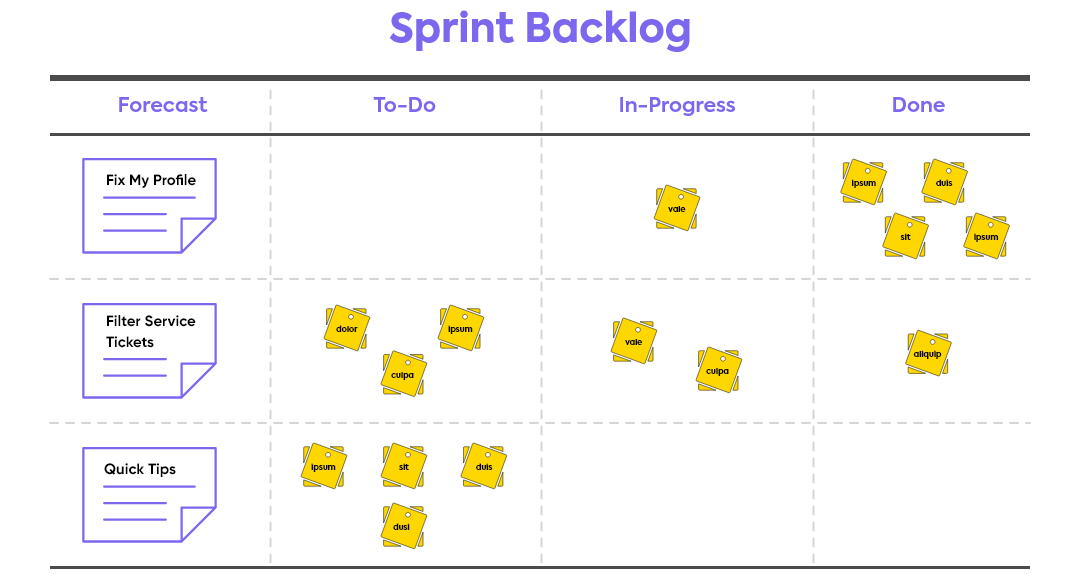
Because of distributing projects into different cycles, work keeps going in other cycles if there is some disturbance in one sprint cycle.
In other words, you don’t have to halt the operations of the entire project if some project requirements get changed.
You just need to modify that one sprint cycle.
This way, the agile model offers much-needed flexibility which results in faster project execution and delivery.
2) Waterfall Model
The waterfall is one of the early-time project management models. Due to its simplicity, several project managers still prefer to use it - even in the healthcare industry.
Unlike the agile model, it follows the more linear approach under which the project manager divides the project into phases (not tasks) and each of these phases goes to the next phase.
Thus, there is high dependency. Without completing the first phase of the project, the team cannot move to the next phase.
A healthcare IT project generally has 5 different phases - requirements, design, development, testing, and maintenance.
If there is not a complex healthcare project, the waterfall model works best as risk remains low and project execution remains easy due to phase-wise project execution.
So, here is the major difference between the agile and waterfall models…
In agile, design and development can be performed into different small tasks, simultaneously. But in a waterfall, first, they prepare the design of an entire product and then move to the coding part.
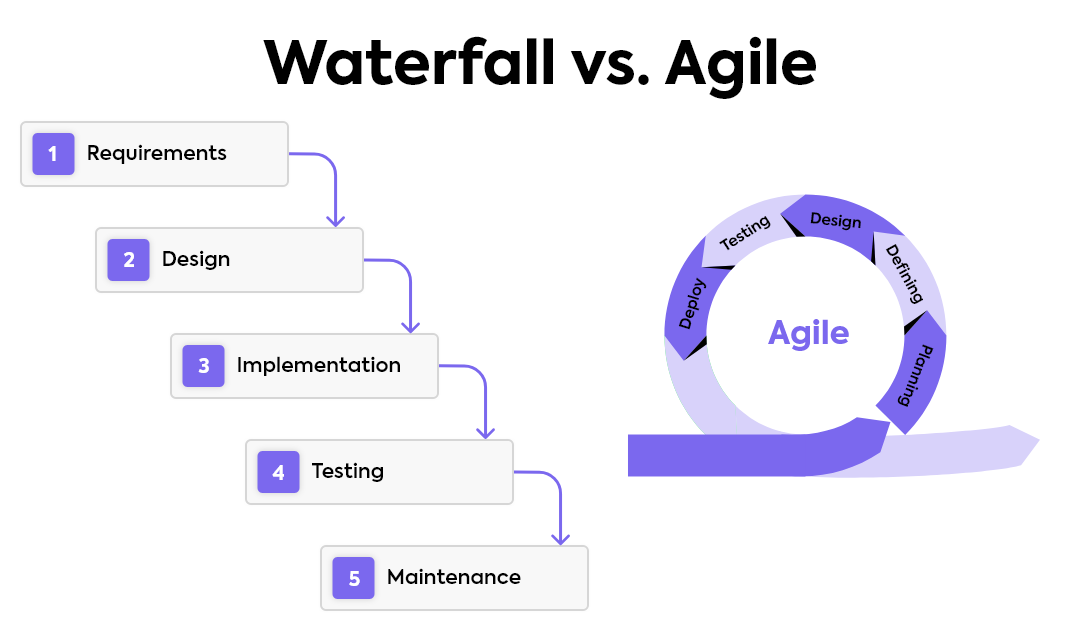
Team Requirements to Execute Healthcare IT Project
A single person cannot execute a healthcare IT project. In addition to project manager, it requires a team with a bunch of dedicated skills.
1) Business analysts
A business analyst is someone who bridges the gap between healthcare projects and IT.
He determines functional and non-functional requirements.
He prepares documents.
He finds top risks.
He defines workflows.
He prepares business models.
He transfers knowledge to developers and designers.
He prepares test cases.
For example, in the case of a telemedicine software project, he defines and documents workflows of appointment booking, online referral, ePrescription, etc.
Based on these workflows, designers prepare the UI/UX, and based on that UI/UX, developers write the code.
This is how business analysts play a very important role.
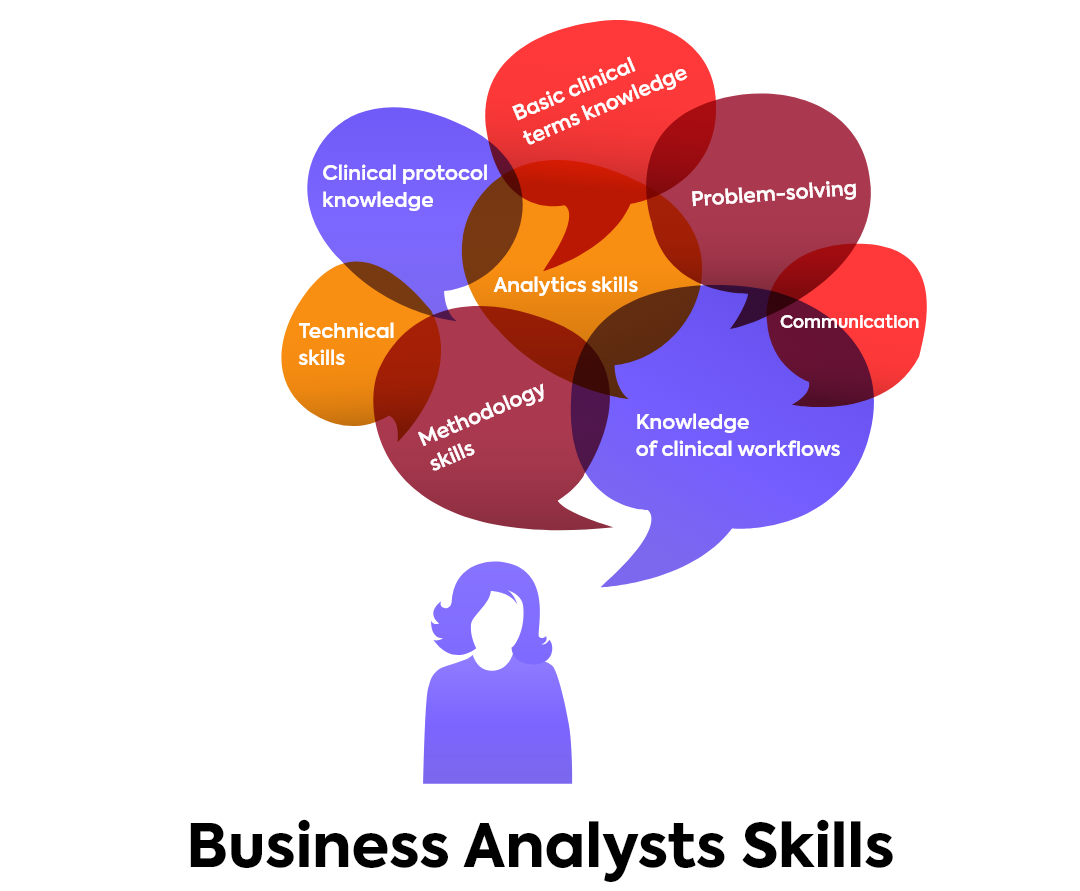
2) Healthcare UI/UX designers
Developers can’t build a healthcare IT product if you don’t provide them with a UI/UX. (That’s how important designers are!)
Keeping business requirement documents (made by business analysts) in sight, the designers prepare the navigation of each function and design of the app/software screen.
Designers ensure that they follow the workflow suggested by the business analysts and design the UI/UX that mimics that workflow.
They first prepare the wireframes on paper or a tool and then prepare the final design.
Their most important role is making sure of a good user experience in addition to good design.
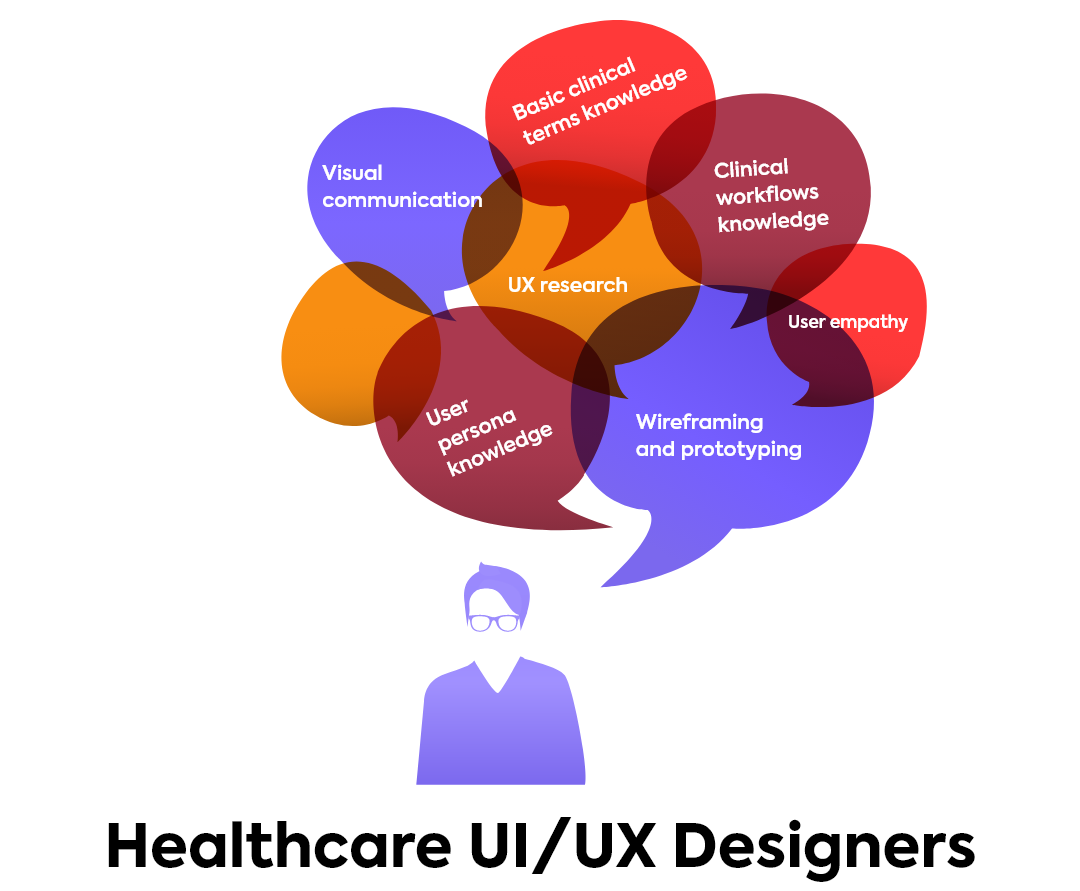
As you might already know, developers code your healthcare app/software.
They code the front end and back end of the product.
They integrate API and create a complex database.
Healthcare-specific developers keep the technical requirements of healthcare compliance in mind and build a compliant product.
They make sure there is no security/privacy gap or interoperability issue.
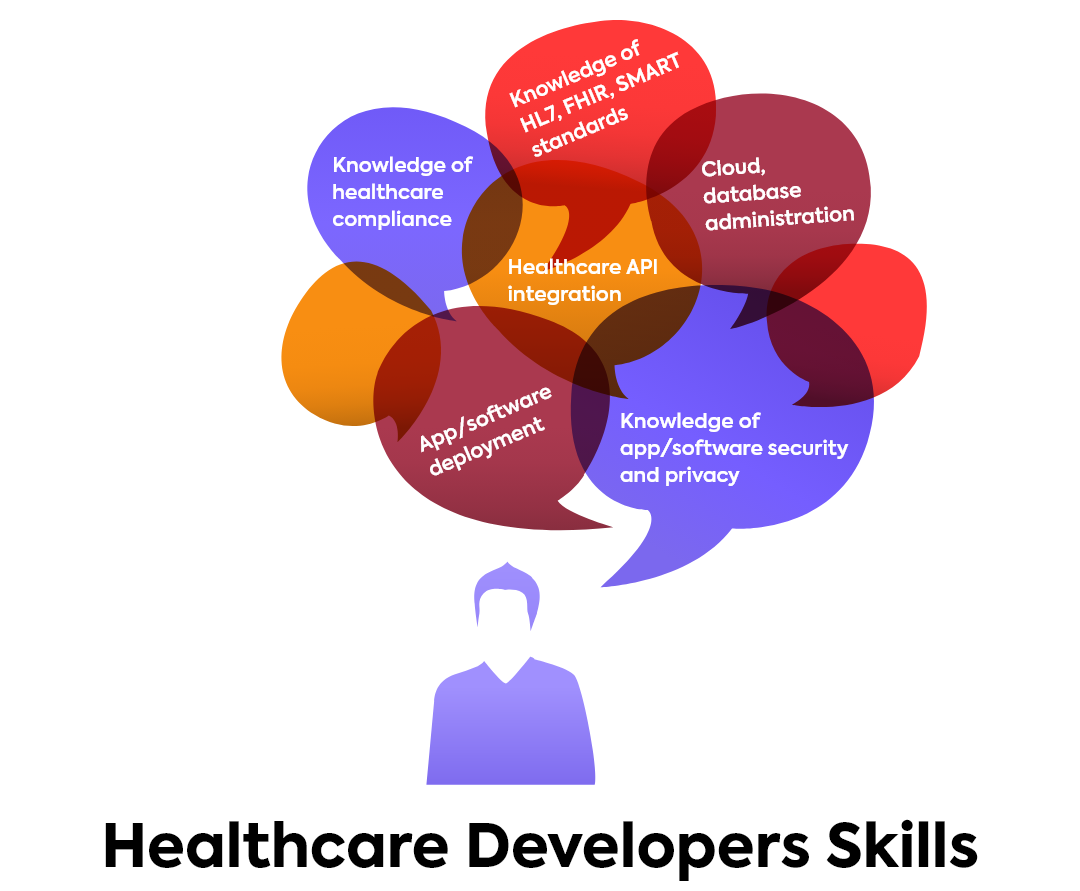
Once the healthcare digital product is ready, it needs to be tested for any possible bug within the functionality, API, UI, database, etc.
Healthcare QA testers utilize either manual or automated testing approaches to test the product.
In manual testing, they test each functionality and feature manually concerning the test case.
In automated testing, testers write the script (code) in an automated testing tool which later tests the healthcare IT product automatically and prepares the report.
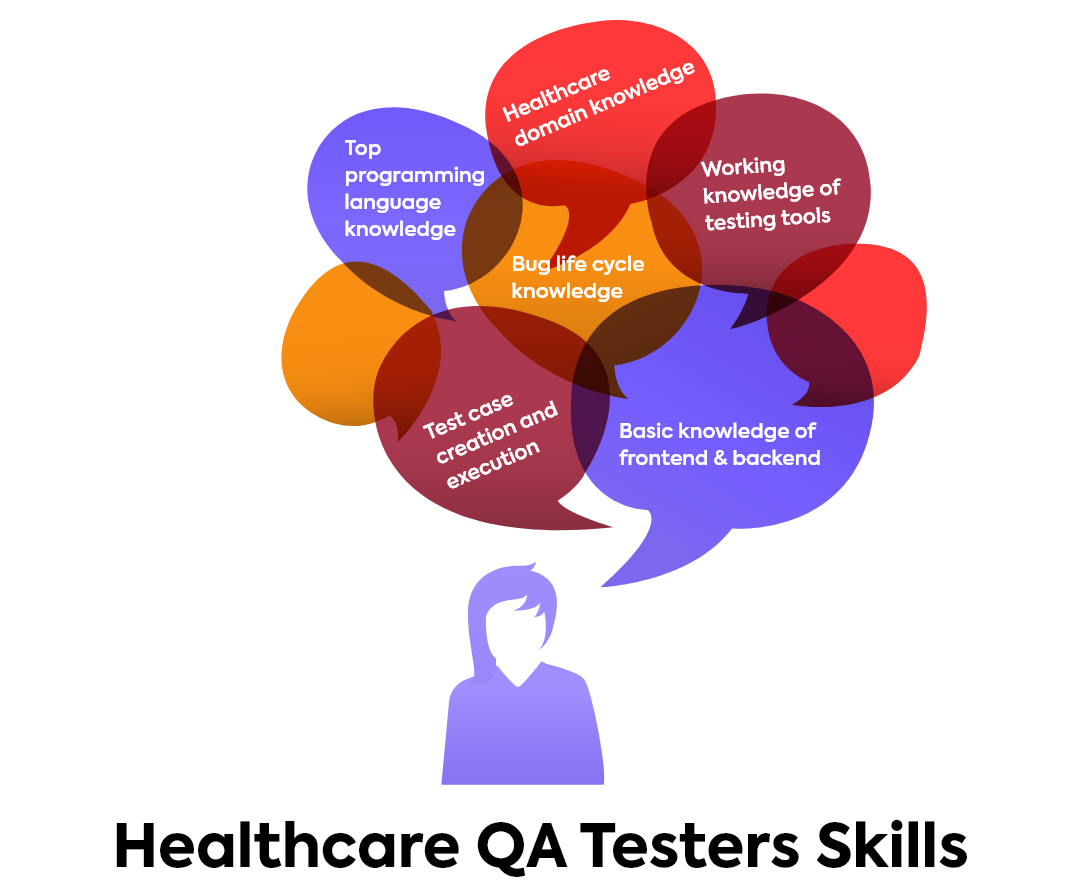
5) Healthcare compliance specialists
Healthcare compliance is very important for every healthcare project.
Multiple healthcare data privacy laws may apply to your healthcare product which you have to adhere to.
The compliance specialist ensures you are addressing all technical and administrative requirements of applicable data privacy laws.
He coordinates with the development team to educate them about the technical requirements of privacy laws.
He carries out a detailed compliance audit to identify any privacy gaps.
He documents everything related to compliance.
Most importantly, a healthcare compliance specialist facilitates you to avoid any data breach with defined privacy and security policies.
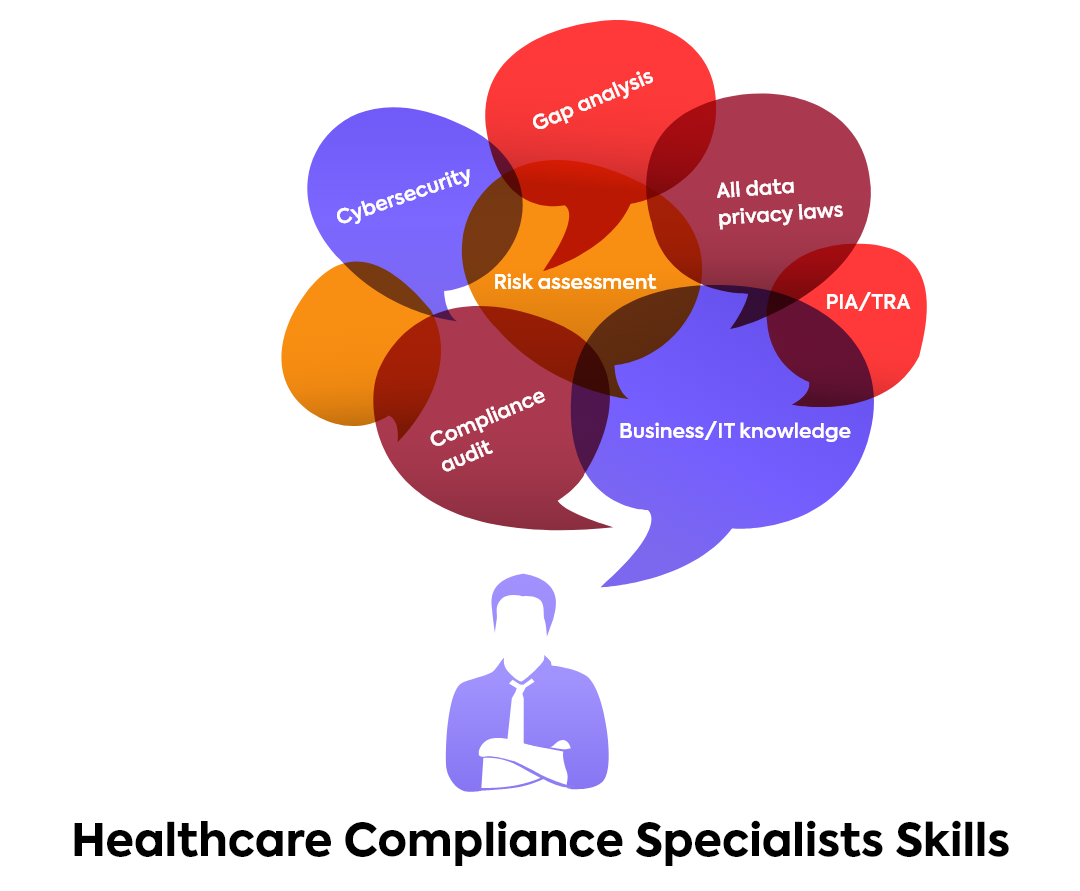
Our other useful resources:
- How to build an evidence-based healthcare app?
- Build a dating app for cancer patients
- 7 senior care business ideas
Looking for a World-class Healthcare IT Project Tech, Business, or Compliance Partner? We’re the Ones!
What’s so common about us:
We’re an Ontario-based IT company.
What’s so exclusive about us:
- We’re a healthcare-specific IT company. Or, we only serve healthcare IT projects.
- We accommodate dedicated healthcare app developers, designers, business analysts, QA engineers, project managers, and compliance specialists.
- All of us have been working only on healthcare IT projects since the first day of our professional careers.
- We have on-ground knowledge of the healthcare market, healthcare billing, compliance, healthcare protocols, clinical workflows, etc.
- We have worked with healthcare providers, hospitals, clinics, nursing homes, LTC homes, healthcare startups and healthcare enterprises.
- We have mastered HL7, FHIR, SMART.
- We deliver peace of mind and clinical value to our healthcare clients. (Yes, peace is exclusive!)
Bonus Learning: Our healthcare IT project delivery approach
